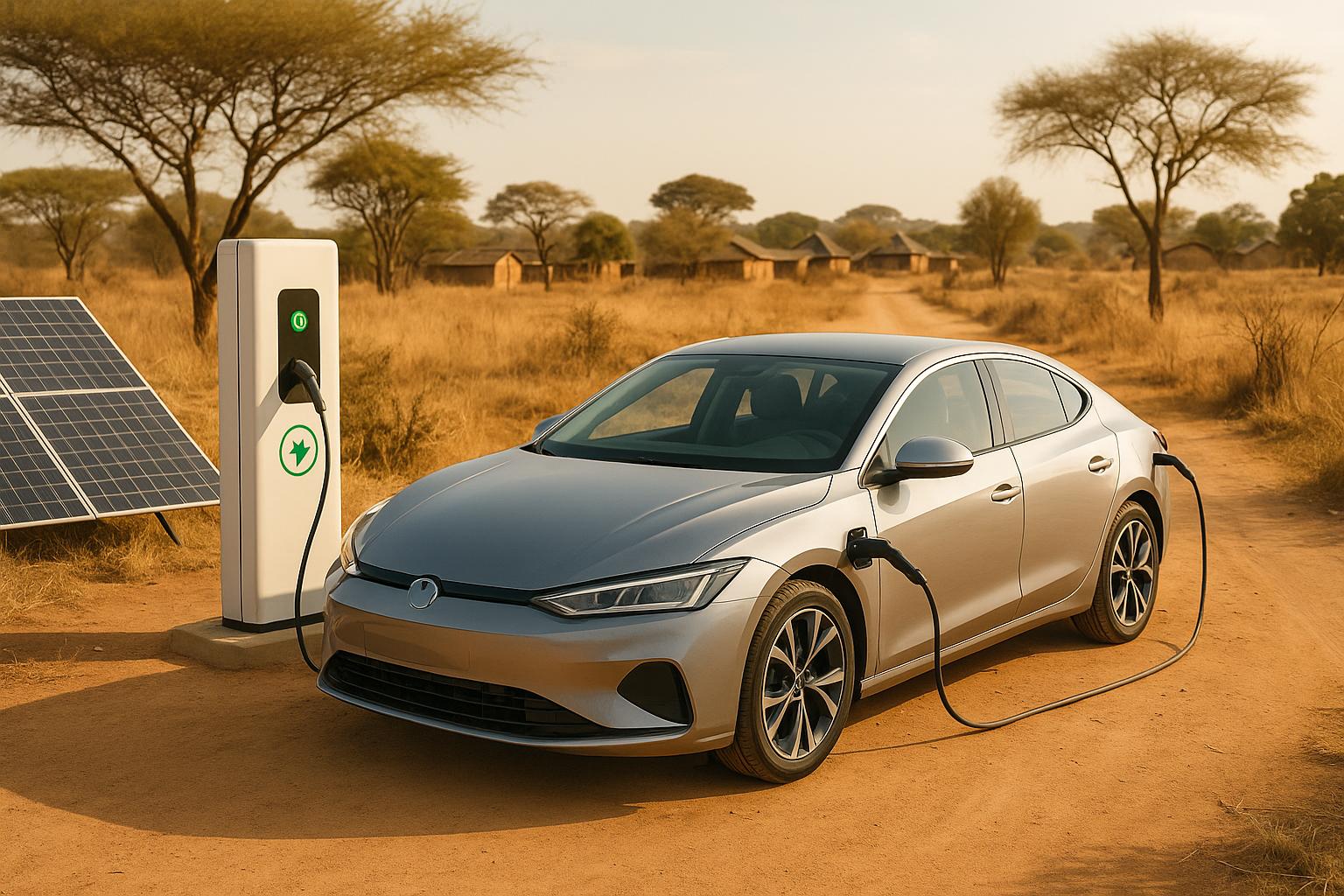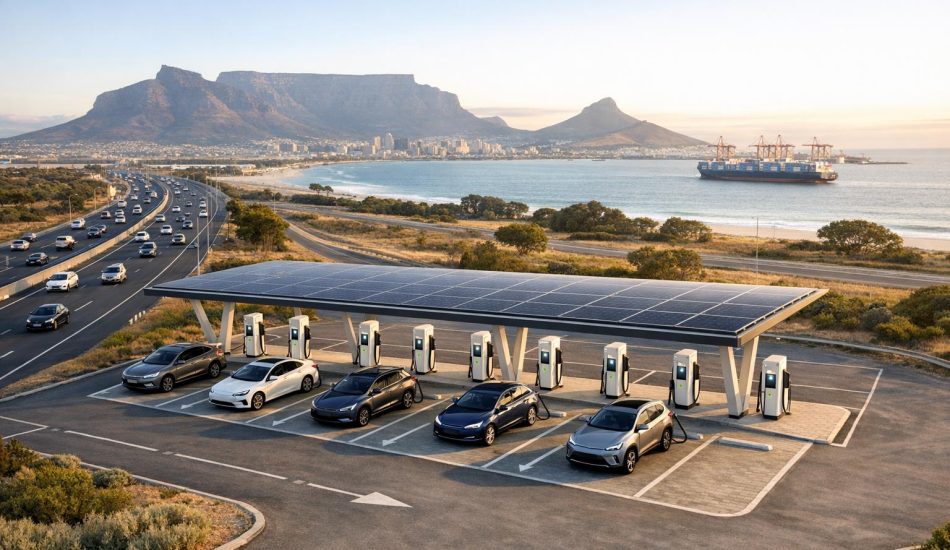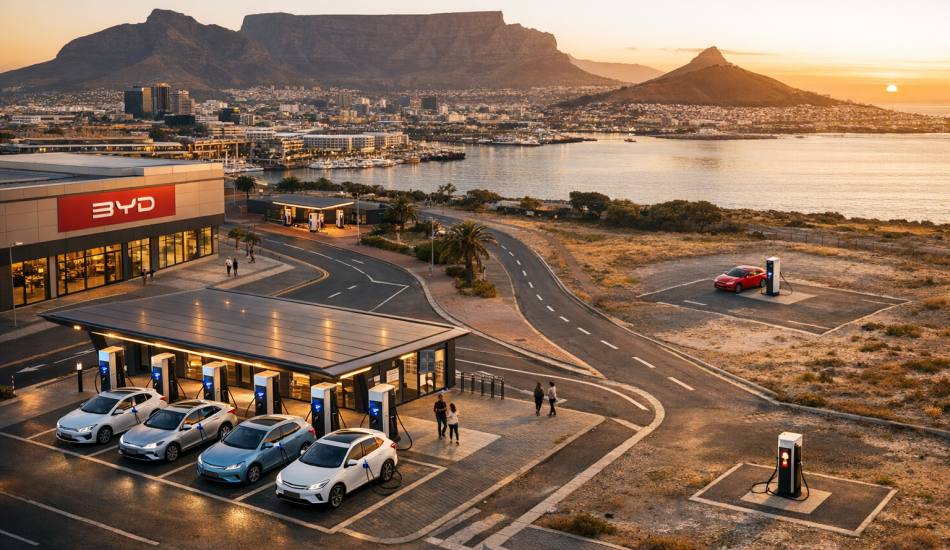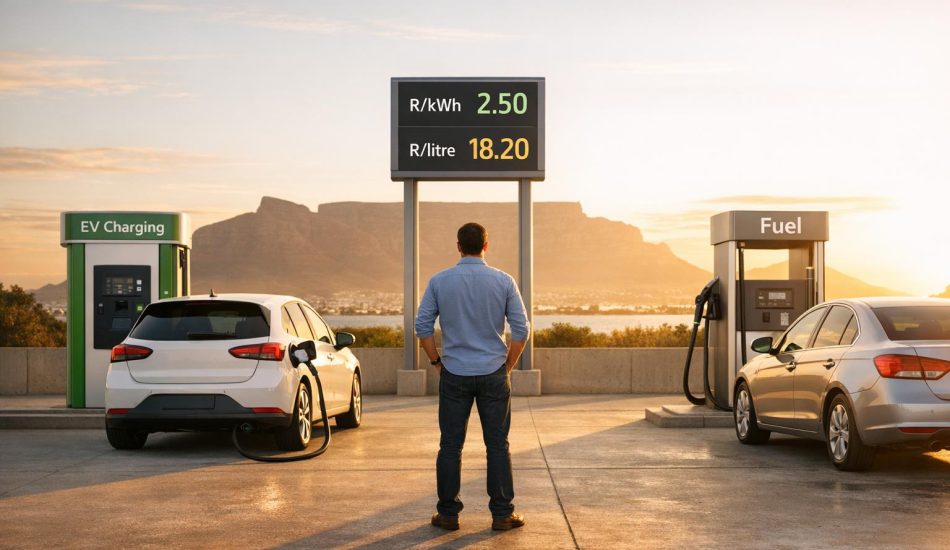
Owning an electric car in Africa comes with both benefits and challenges. Here’s the quick takeaway:
- Pros: Lower fuel and maintenance costs, expanding charging networks, cleaner air, and a smoother driving experience.
- Cons: High upfront cost, limited charging infrastructure, unreliable power supply, and environmental concerns tied to fossil-fuel-based electricity.
Key Points:
- EV prices range from $5,880 to $85,000, with some governments offering tax breaks and reduced import duties.
- Charging networks are growing, with solar-powered options in places like South Africa and Rwanda.
- Challenges include sparse rural infrastructure, frequent power outages, and electricity generation often reliant on fossil fuels.
If you live in a city with reliable electricity and short commutes, an electric car could save you money over time. However, for rural areas or regions with unstable power grids, the challenges might outweigh the benefits.
1. Pros of Owning an Electric Car in Africa
Cost
Electric vehicles (EVs) can lead to significant savings over time, especially when it comes to fuel and maintenance. Since EVs have fewer moving parts and use regenerative braking, many common maintenance tasks – like oil changes or spark plug replacements – are no longer necessary. This simplicity translates to lower upkeep costs.
In addition, several African governments are rolling out incentives to make EVs more affordable. These include reduced or completely waived import duties, tax breaks, and allowances that help offset the higher upfront price of electric vehicles. And as charging networks continue to grow, the cost benefits of owning an EV become even more appealing.
Infrastructure
Charging networks are expanding quickly across Africa, with many incorporating fast-charging and solar-powered options. This development is making EVs a practical choice not just for daily commutes but also for longer trips, removing one of the key barriers to adoption.
Environmental Impact
One of the biggest advantages of EVs is their contribution to cleaner air. By producing zero direct emissions, they help reduce air pollution, which can have a positive effect on public health in urban areas. In regions where renewable energy sources dominate electricity generation, the overall carbon footprint of EVs is even lower compared to traditional vehicles. Additionally, relying more on EVs could decrease the need for imported fuels, which is a significant benefit for many African economies.
Driving Experience
Driving an EV is smooth and quiet, thanks to features like instant torque and seamless acceleration. Many models come equipped with advanced tech, such as built-in navigation that highlights charging stations and remote monitoring for charging. Their quiet operation makes for a more peaceful ride, especially during long drives. Plus, the reliable design of EVs ensures they’re dependable, which is especially valuable in areas where vehicle repairs can be a challenge.
2. Cons of Owning an Electric Car in Africa
Infrastructure
Owning an electric vehicle (EV) in Africa comes with its challenges, especially when it comes to charging infrastructure. Many areas lack enough charging stations, and frequent power outages only make matters worse. This combination not only fuels range anxiety but also makes reliable charging – whether at home or in public – difficult. These issues can also reduce the environmental advantages typically associated with EVs.
Environmental Impact
The environmental benefits of EVs are closely tied to the energy sources used for charging. In regions where electricity generation depends heavily on coal-fired power plants or diesel generators during outages, the carbon footprint of charging an EV can be significant. Since many African countries still rely on fossil fuels for electricity, the "zero emissions" claim of EVs doesn’t always reflect the full picture.
WHY ARE SOUTH AFRICANS NOT BUYING ELECTRIC CARS ?!
sbb-itb-99e19e3
Side-by-Side Comparison
Here’s a look at the advantages and hurdles of owning an electric car in Africa:
| Criteria | Pros | Cons |
|---|---|---|
| Operating Costs | Electricity is generally cheaper than gasoline, and electric cars have fewer moving parts, leading to lower maintenance needs. | The initial purchase price is higher compared to similar gasoline-powered vehicles. |
| Environmental Impact | Electric cars produce zero direct emissions, and their environmental benefits grow as renewable energy becomes more widespread. | In regions where electricity is generated mainly from fossil fuels, the environmental benefits diminish. |
| Infrastructure | Growing investments in charging networks and the option to charge at home using solar panels. | Sparse charging stations and frequent power outages can make charging inconvenient. |
| Government Support | Some countries offer tax breaks and reduced import duties to encourage EV adoption. | Government incentives and policies vary widely across the continent. |
| Energy Independence | Less reliance on imported fuel and the chance to use locally produced renewable energy. | Unstable electricity grids and load shedding can limit charging availability. |
| Technology Access | Electric vehicles come with advanced features, like smartphone integration for monitoring and control. | Repairs and maintenance can be tricky due to limited local expertise. |
| Range & Performance | Ideal for urban driving with sufficient range and quick acceleration thanks to instant torque. | Long-distance travel can be challenging due to limited fast-charging options and range concerns. |
This breakdown shows the trade-offs involved in owning an electric vehicle (EV). For urban dwellers with steady access to electricity and short commutes, EVs can be a practical and economical choice. However, rural areas with unreliable power grids may pose significant challenges. While the upfront cost of EVs is higher, long-term savings on fuel and maintenance can offset this. As investments in charging infrastructure continue, the landscape for EV ownership in Africa is gradually evolving, offering varied opportunities for potential buyers.
Conclusion
Deciding whether to own an electric car in Africa depends heavily on where you live, how reliable the local electricity supply is, and your daily driving habits. For city residents with steady access to electricity and shorter commutes, electric vehicles (EVs) can be a great option. They come with perks like lower running costs and less frequent maintenance. However, in areas where power supply is unreliable, these advantages can quickly be overshadowed by the challenges of keeping your car charged.
The financial aspect also plays a big role. While EVs often come with a steep upfront price tag, they can save you money in the long run through reduced fuel and maintenance costs – if electricity is both affordable and dependable where you live. In some regions, government incentives can help ease the initial cost, but these policies vary widely across Africa. Likewise, a stable power grid or access to alternative charging solutions makes EV ownership more feasible, while frequent outages may make the switch less practical.
Electric cars shine in urban environments with reliable charging options and predictable driving routes. They’re ideal for tasks like commuting, school drop-offs, and running errands around the city – basically, scenarios where you can count on the infrastructure to support your needs.
As charging networks expand and battery technology improves, EVs are gradually becoming a more realistic option across the continent. If you’re considering making the switch, take a close look at your daily routine and the reliability of local charging options. Aligning your choice with the specific conditions in your area ensures a smoother transition to electric vehicle ownership.
FAQs
What can electric car owners in Africa do to deal with limited charging stations and power outages?
Electric car owners in Africa face challenges like limited charging stations and power outages, but there are practical ways to navigate these hurdles. Charging at home or work is often the most dependable option, especially overnight, when electricity demand tends to be lower. As public charging networks gradually grow, new fast-charging stations in cities and along major roads provide additional convenience.
For those looking to cut reliance on the grid, installing solar panels for home charging can be a smart move, offering both cost savings and greater independence. On top of that, many electric vehicles and companion apps now come with features to locate nearby charging stations. These tools make trip planning much simpler and reduce the risk of running out of battery. With these strategies, owning an electric car becomes more manageable, even in areas where infrastructure is still catching up.
How does owning an electric car impact the environment if your electricity comes from fossil fuels?
Electric cars are known for producing zero tailpipe emissions, making them a cleaner option for driving compared to traditional gas-powered vehicles. But their overall impact on the environment isn’t just about what comes out of the tailpipe – it also depends on how the electricity that charges them is generated. In regions where electricity is largely produced by fossil fuels, the reduction in carbon emissions might not be as dramatic, since power plants burning coal or gas still release greenhouse gases.
Even so, EVs tend to be more efficient than gas-powered vehicles, even in areas with fossil fuel-heavy energy grids. As the use of renewable energy sources like wind and solar continues to grow, the environmental advantages of electric vehicles will only improve. Choosing an EV is a meaningful step toward cutting air pollution and encouraging a shift to cleaner energy systems over time.
Do any African countries offer incentives to help reduce the high upfront costs of electric vehicles?
Some African countries are taking steps to make electric vehicles (EVs) more accessible by offering various incentives. These often include tax reductions, lower import duties, and waivers for certain fees, all aimed at reducing the upfront cost of owning an EV.
That said, the type and extent of these incentives can differ significantly from one country to another. To find out what applies in your area, it’s worth reviewing local policies or speaking directly with EV dealers who can provide detailed information.




